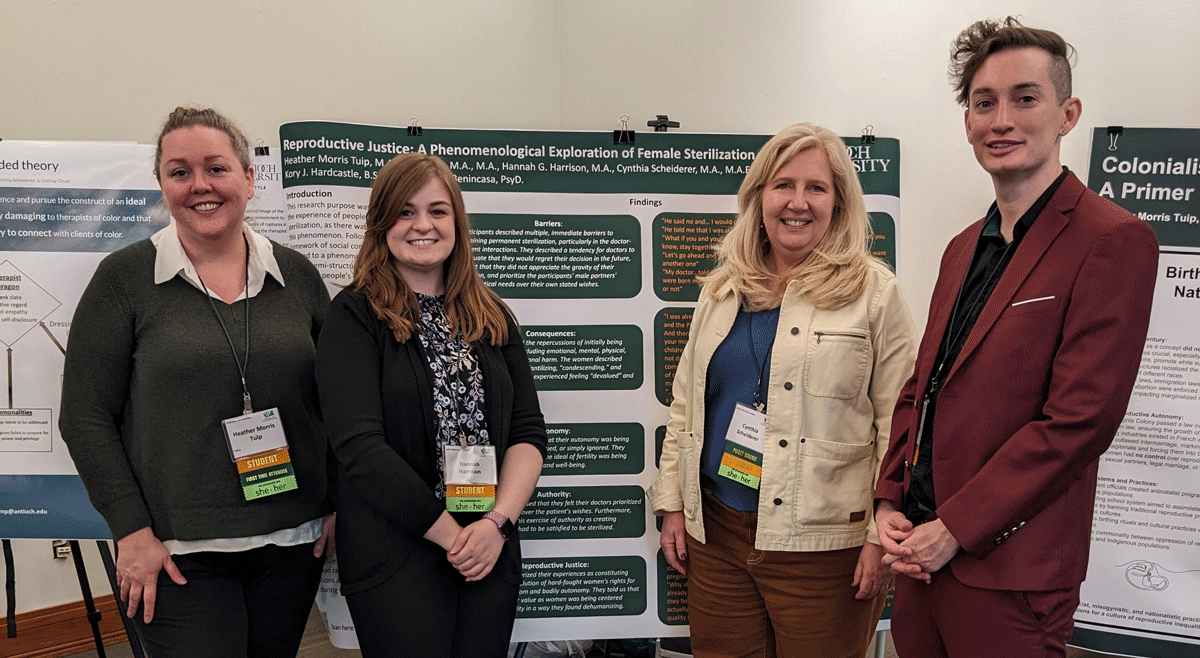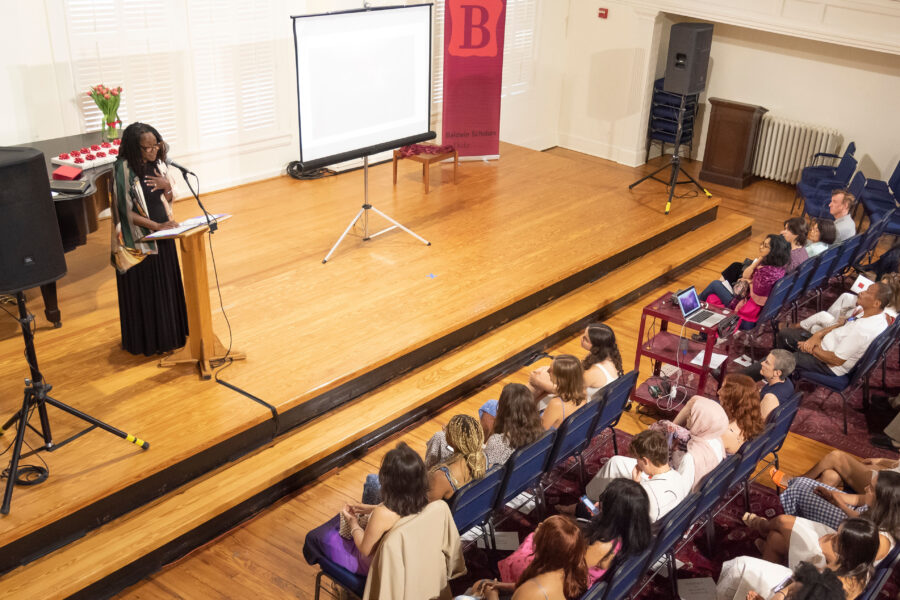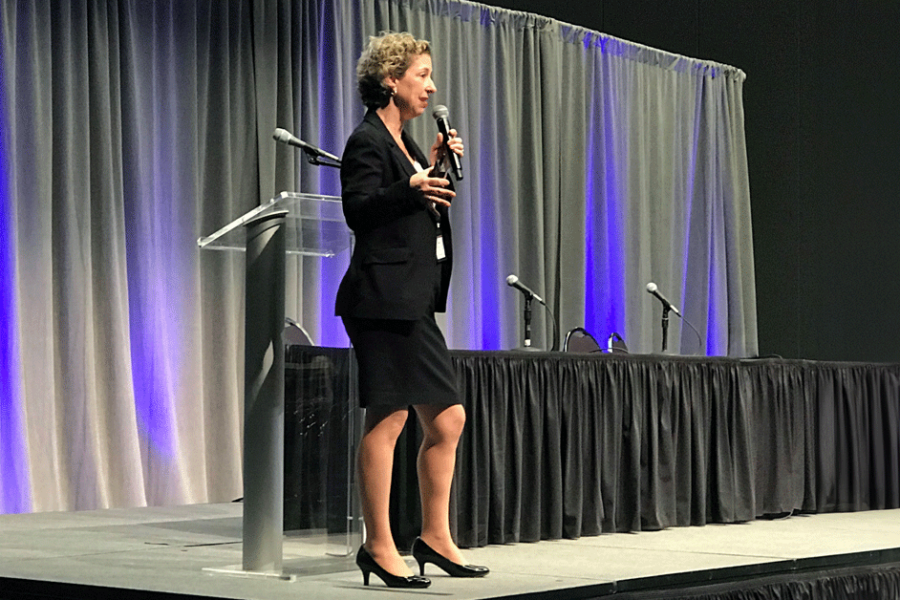A group of student researchers from the Seattle PsyD in Clinical Psychology presented their research at the Washington State Psychological Association Convention on October 13 and 14, 2023. They presented three posters. Two explored the topic of reproductive justice through a psychological lens. These were titled “Colonialism, Control, and Copulation: A Primer on Reproductive Justice” and “Reproductive Justice: A Phenomenological Exploration of Female Sterilization.” A third poster, “Pathways to the Therapist Paragon: A Decolonial Grounded Theory,” explored how privilege and the idea of an ideal therapist could be damaging to therapists of color and to the non-white clients of white therapists.
The Washington State Psychological Association (WSPA) represents and supports professionals in the psychology field on a state level, and this annual conference is a major part of fulfilling this mission. The opportunity to attend the conference, which was held in person on the campus of Seattle University, allowed these students to network within their field on a local level. For Heather Morris Tuip, one of the presenting students, the experience did exactly this. She says, “Presenting research at the Washington State Psychological Convention was a meaningful experience. The convention cemented the importance of research to applied psychology.”
Another of the student researchers, Jack Krizizke, especially savored the opportunity to have their work seen more broadly. “My colleagues and I work hard to create and disseminate cutting-edge research,” he says. “The convention was a great opportunity to share our work and showcase our skills with peers, faculty, and researchers from neighboring institutions.”
The decision to showcase research around reproductive justice was deliberate, coming in the year after the U.S. Supreme Court overturned the 49-year-old precedent of Roe v. Wade. But with the poster titled “Colonialism, Control, and Copulation: A Primer on Reproductive Justice,” students sought to place contemporary struggles in a larger context. Ash Lonikar, one of the students who made the poster, says, “The poster my colleagues and I were presenting was related to the historical threads of coloniality in the reproductive rights issues. We made an effort to highlight the differences between reproductive rights and reproductive justice such that reproductive justice moves beyond just the pro-life vs. pro-choice argument and into the understanding that individuals should have the right to their bodily autonomy, the right to have children, the right not to have children, and the right to raise children in a safe and sustainable environment.”
The poster sought to explore specifically the way reproductive freedom has been denied for marginalized groups, especially in Black communities and Indigenous groups. Its authors were Heather Morris Tuip, Aishwarya Lonikar, Abby Staley, and Melissa Kennedy.
For the poster “Reproductive Justice: A Phenomenological Exploration of Female Sterilization,” the researchers focused on those who have sought female sterilization on their own. Their analysis found the obstacles women face when seeking help and the importance of self-advocacy. This poster’s authors were Morris Tuip, Shihan Xu, Hannah G. Harrison, Cynthia Scheiderer, Kory J. Hardcastle, and Charles A. Benincasa.
The poster “Pathways to the Therapist Paragon: A Decolonial Grounded Theory” was created by PsyD Chair Jude Bergkamp and the students Maeve O’Leary Sloan, Jack Krizizke, Malea Lash, Noah Trantel, Jason Vaught, Tessa Fulmer, Ilana Waite, Abi Martin, Cynthia Scheiderer, and Lindsay Olson.
Representing Antioch at WSPA not only made staff and faculty proud, but the students found pride within themselves and their presentations. As Morris Tuip says, “It was impactful to see the psychologists I have learned from and looked up to throughout my clinical training facilitating conversations on improving client care and issues of licensure and prescriptive rights in Washington state.”
Being able to share their research with the community was especially enriching. “We had the opportunity to engage in conversations relating to this topic with many people,” says Lonikar. “We were able to engage with the community in a way that allowed us to not only represent Antioch, but it also gave us the opportunity to be allies, activists, and advocates for social justice, which is a pillar that our school was built on.”



